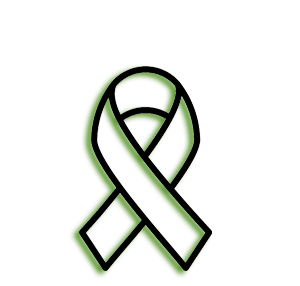
23 Jun BREAST CANCER AND OBESITY
Break out your pink ribbons! It’s October, which means it’s Breast Cancer Awareness Month. We’ve seen great progress in the diagnosis and treatment of the disease in the past 30 years, leading to a significant increase in survival rates. However, we all know there is still a long way to go before we can breathe a collective sigh of relief that breast cancer is a thing of the past.
This month brings us the opportunity to highlight some of the ways we can reduce the risk of breast cancer through weight loss. Let’s first look at some of the research that provides evidence of the link between excess weight and breast cancer.
In a 13-year follow-up study of over 67,000 women published in the Journal of the American Medical Association (JAMA), researchers found that the risk of breast cancer is 58 percent higher for postmenopausal women suffering from obesity than for healthy-weight women. In addition women who gained more than 5 percent of their body weight had an increased risk, while women who lost weight during the study decreased their risk.
In a 2006 study published in JAMA, it was shown that women who lost four to eleven pounds after menopause reduced the risk of breast cancer by more than 20 percent compared to women whose weight remained the same. Women who gained 20 pounds after age 18 increased their risk by 15% and women who gained 55 pounds had a 45 percent higher risk.
The latest research indicates that weight isn’t the only factor. The risk of breast cancer is also linked to increased body fat. A study conducted earlier this year by the Memorial Sloan Kettering Cancer Center concluded that even women with healthy weights and high body fat levels may have an increased risk of breast cancer. Therefore, body composition analysis is important. CMWL places strong emphasis on fat loss, so you can understand how much of your body weight can be attributed to fat and begin to recognize the ways in which you can lower that percentage.
We could fill volumes writing about all the research supporting the fact that obesity increases breast cancer risk, but we’d rather talk more about ways you can prevent it by losing weight and controlling it for the long-term.
In short, decreasing your body fat can greatly decrease your risk of breast cancer if you are postmenopausal.
We recommend foods that are high in protein and not just low in calories so that you can retain your muscle mass while you lose weight. Therefore, when you lose weight, you will be decreasing your unhealthy fat levels instead of your healthy muscle. Furthermore, it’s important to attack the root of the problem, which is the daily decisions you make regarding your health. You may need to commit to behavioral changes to make healthier choices throughout the day.
Though breast cancer deserves attention 365 days a year, October is meant to be a time of heightened awareness. When you become more aware of the importance of your body fat percentage, you can develop a fat loss plan best-suited for your goals. As you learn healthier habits through behavioral counseling, you will be better prepared when faced with difficult health decisions. With body composition analysis and your newfound understanding of body fat percentage, you are better equipped to decrease your risk of breast cancer.
As new research has indicated, it’s important to shed your excess fat to improve your chances of living long and healthy lives. If you suspect that your weight or body fat percentage might contribute to increased risk of breast cancer, visit your local CMWL center. This is especially true if you have a family history of the disease. We’ll provide a screening of your weight, BMI, and body composition (including fat percentage), and discuss the ways to reduce your breast cancer risk through healthy lifestyle changes. It might be the best thing you do for yourself this October.


